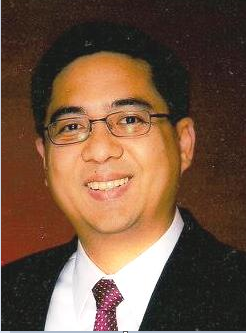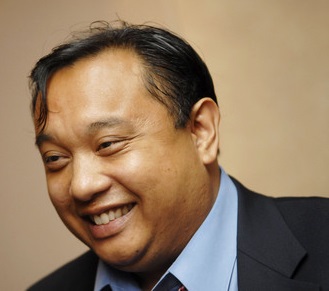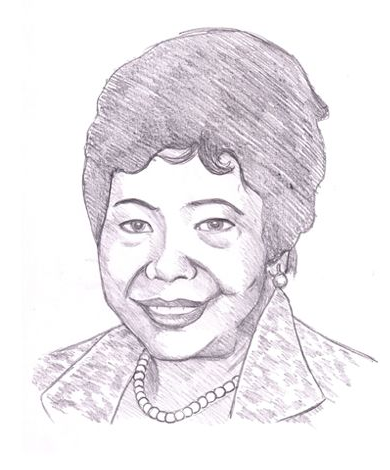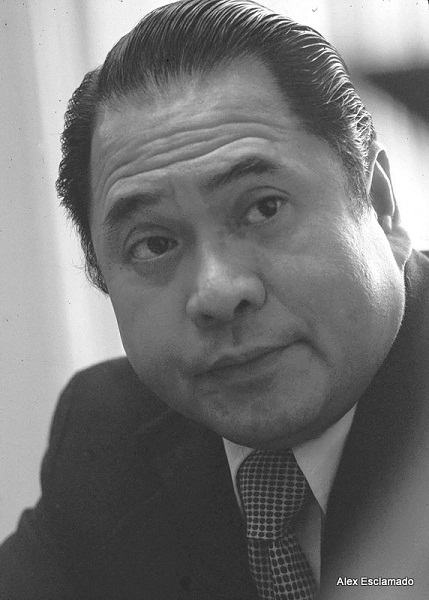FilAm journalists mourn passing of Alex Esclamado, remember his legacy
Seasoned journalists and the newbies on their trail remember feisty publisher and Bay Area community leader Alex Esclamado, who founded Philippine News, a newspaper known for its indignant opposition to Ferdinand Marcos’ martial law.PN columnist and long-time friend Rodel Rodis said Esclamado died of pneumonia in a hospital in Cebu City on November 4th (U.S. time). He led the national campaign in the 1970s for Filipino World War II veterans to be naturalized as U.S. citizens as well as the lobby to get the U.S. Congress to rescind the 1946 Rescission Act. He was also the founder of the umbrella coalition National Federation of Filipino American Associations or NaFFAA.
“I was indeed privileged and honored to have worked with Alex during the good and difficult times in the 1970s and 1980s,” said Eric Lachica, spokesman for the American Coalition for Filipino Veterans and one-time PN correspondent for Los Angeles. “Alex has joined the pantheon of Ninoy, Raul (Manglapus) and Cory Aquino in the all-night cafe ‘The Impossible Dream.’”
Ludy Ongkeko, another PN columnist and friend of Esclamado and his widow Luly, described the man a FilAm trailblazer “whose legacy belongs to the ages.”
Lawyer-journalist Esclamado arrived in the United States in 1959 and accepted the position as chief correspondent of the Manila Chronicle, USA Edition. Around that time, said Ongkeko, he also won a scholarship from Hastings Law School in San Francisco.
“Feeling the pulse of the growing community of Filipinos in the United States, Alex did not lose time in establishing a weekly, the Philippine News, in 1961. Although the paper is not the first Filipino American publication, it earned its reputation as the first broadsheet , the first to go national, and shortly after, global,” she said.
“Standing out as Alex’s fight against unbridled political power was how he kept his love of his homeland alive during the dark days of martial law from 1971-1986,” Ongkeko said. Soon, he became the “fearless voice” of the anti-dictatorship movement in America.
The 1980s and the ‘90s saw Esclamado reaping high honors and recognition: He is the only Filipino American recipient of the congressionally-sponsored Ellis Island Medal of Honor in October 1986, and a Philippine Legion of Honor Award accorded to civilians in the Philippines was conferred by Philippine President Corazon Aquino in 1989.
In 1997, Alex retired from the daily newspaper grind, but continued to serve full-time as National Chair of NaFFAA until 2002, still fighting for Filipino American empowerment, said Ongkeko.
Another journalist who remembers Esclamado with fondness was Eugenio “Gene” Ramos. He was one of three advertising staffers at the Manila Chronicle decades ago who produced camera-ready pages of the paper that eventually became the Philippine News. Esclamado hired two of that trio — Virgilio Makalalad and Nick Benoza — to work as the first editors of PN in San Francisco.
“I did not go as I had become a business reporter of the Chronicle, my first job as a journalist,” recalled Ramos. “I remember Alex as jovial, easy to get along with and bent on establishing a credible newspaper.”
He knew it would be a struggle to get a newspaper going, but with his “pioneering spirit,” Philippine News became a credible source of news for Filipinos and their families in the U.S., Ramos said.
Rest in peace Alex Esclamado, wrote young journalism graduate Ryan Gajudo Macasero on his Facebook wall.
“As a newbie and budding reporter, I took on the advocacy of PN as a medium of empowerment for the FilAm community as my own. PN not only changed the way I viewed the news, but changed the way I looked at the importance of community service and empowerment,” said Macasero, also a PN correspondent. “I never got the chance to meet you in person, but…the flames of your legacy continue to burn within the soul of our community.”












